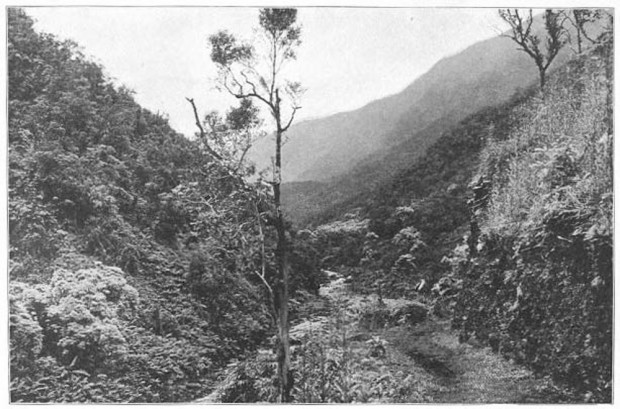In the very early 1800s, a census of Wainiha Valley was taken that began at Naue near the sea and proceeded mauka through the villages of Pa‘ie‘ie, Maunaloa, Pali‘ele‘ele, Maunahina, Pohakuloa, Opaikea, Homaikalani to La‘au, a hamlet seven miles inland.
In the very early 1800s, a census of Wainiha Valley was taken that began at Naue near the sea and proceeded mauka through the villages of Pa‘ie‘ie, Maunaloa, Pali‘ele‘ele, Maunahina, Pohakuloa, Opaikea, Homaikalani to La‘au, a hamlet seven miles inland.
Upwards of 2,000 persons were counted, and what is most intriguing is that the 65 residents of La‘au reported their race as Menehune.
But these were not the Menehune of legend — the mythical race of sturdy brown little people capable of performing prodigious feats of overnight construction.
Instead, it seems likely they were descendants of Kaua‘i’s aboriginal inhabitants, the Marquesans, who had arrived on Kaua‘i as early as the 8th century AD, and who’d come to be called “Menehune” by Tahitians, who’d settled Kaua‘i during the 12th and 13th centuries.
At Maunahina was an ancient trail that led up to the Kilohana of Hanalei overlooking Wainiha Valley and on to Koke‘e and Waimea. In 1821 missionaries Whitney and Bingham hiked this trail from Waimea to the Kilohana, and after descending 4,000 feet into Wainiha on a path that angled steeply at 60 to 75 degrees, they met Hawaiians who had never before seen white men.
By 1847 the population of Wainiha had declined to 154 residents, and in the late 1800s immigrant Chinese had begun planting rice in abandoned taro patches.
In 1903 McBryde Sugar Co. negotiated a 50-year lease for $1,500 a year with Hui Wainiha — an association of 71 Hawaiian shareholders who owned roughly 15,000 acres of Wainiha Valley — for water power rights to Wainiha Stream and a site for a hydroelectric plant.
McBryde eventually bought 48 shares of Hui Wainiha and the Robinson brothers, Aylmer and Sinclair, purchased another 16 shares, so that by 1947, only seven shares were held by heirs of Hui Wainiha.



